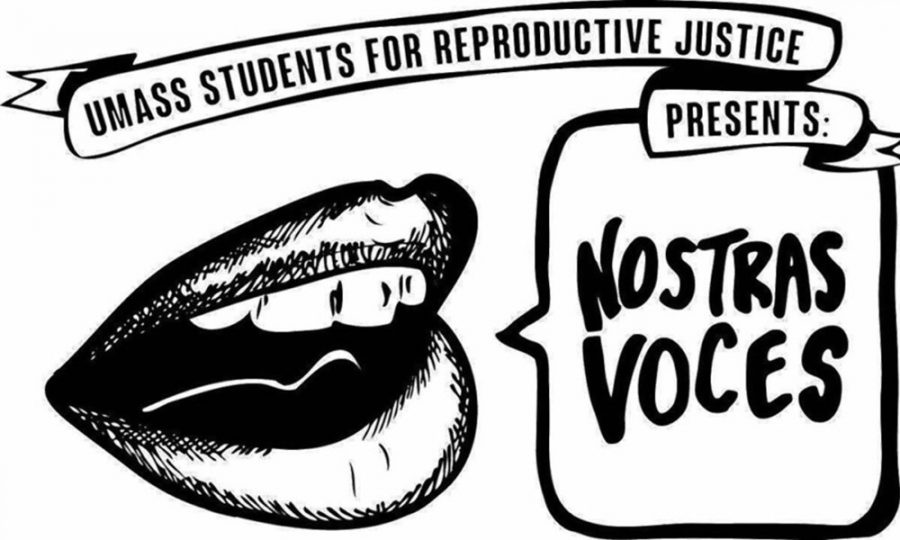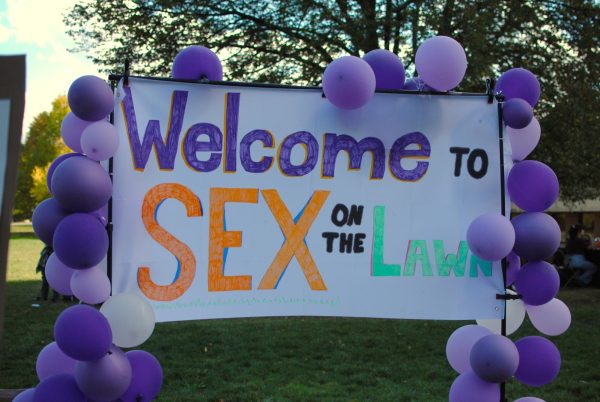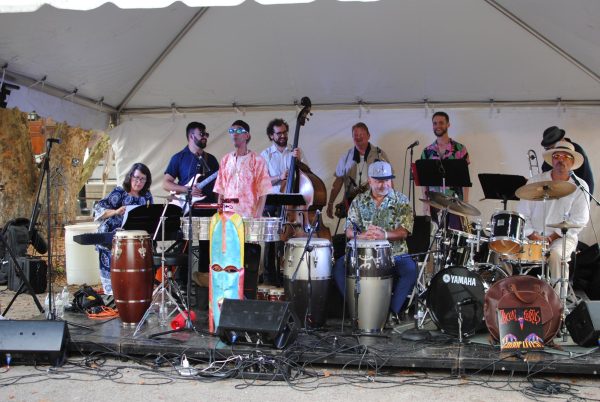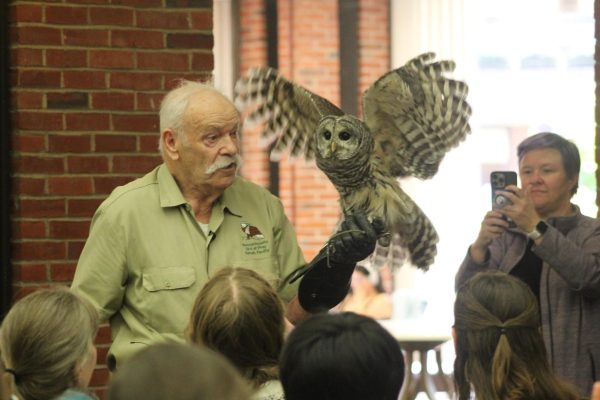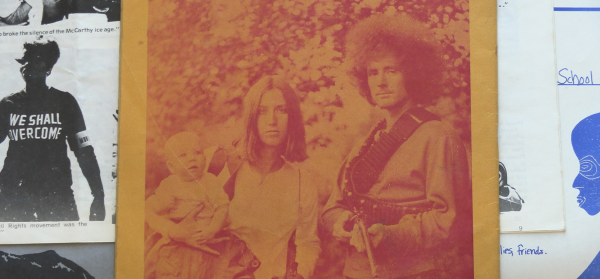Nostras Voces begins planning for 2020 show
AMHERST – Years back, performances of “The Vagina Monologues” were a tradition for UMass Amherst’s Students for Reproductive Justice. However, the group’s recreation of the world-renowned play has evolved into their own unique and inclusive fusion of art and activism: Nostras Voces, a Latin translation of ‘Our Voices.’
“…We came to the conclusion that ‘The Vagina Monologues,’ while a groundbreaking piece of theater for its time, was outdated and lacking the intersectionality that USRJ strives to achieve within our activism,” said one of the show’s previous Director, Helen Woods, in a 2017 interview. “’The Vagina Monologues’ focuses mainly on the experience of white, heterosexual, cis women, and USRJ does not stand for that lack of representation.”
The change was spurred by student opinions that echoed Woods’ statement. As a result, Nostras was born as a way to let students of all backgrounds express their own stories.
“My aim is to provide a really candid, intimate space and for people to kind of learn and grow with each other and feel comfortable sharing their experiences in a way that they may not have the opportunity to do elsewhere,” explained the show’s current Director, Olly Kelly.
Now as the group moves into the beginning stages of their next show, Kelly hopes to continue this push for greater inclusivity. This not only means encouraging non-artists and people from marginalized backgrounds to join the lineup but also shifting Nostras’ original focus on reproductive justice and feminist issues to more broad themes relating to identity, trauma and social justice.
The show’s open-ended format also extends to the kind of work contributors can submit. On top of performative pieces, e.g. poems, skits and choreography, people can submit art to the show’s gallery.
“I think art is invaluable as a tool for sharing narratives,” said Nostras contributor, Jasper Cowley. “While there is diversity here at UMass, there is no escape from marginalization at school or in our day-to-day lives.”
For last year’s show, Cowley created “Boys Do Cry,” a series of drawn portraits depicting men they interviewed about masculinity. Each portrait was surrounded by quotes from their interviews, letting viewers inside the heads of Cowley’s subjects.
“I really enjoyed the conversations I had with these men and it really opened my eyes to the diversity of the ‘male experience,'” they said. “It was incredible to not only learn from people but to share their experience in an unfiltered way.”
A large part of Nostras’ focus is to give a platform for marginalized voices to be heard and appreciated in a comfortable setting.
The show’s personal nature – with artists crafting their own pieces of the show – also makes the experience just as much for the creators as it for the audience. Contributors are given space to process their emotions and understand the world around them. Last year’s show, for example, took place during Brett Kavanaugh’s induction into the Supreme Court.
“I would say that as the days go on, it seems like there’s kind of less and less space and rights and attention for folks who really need it,” said Kelly.
They later added, “I just take a lot of pride in the show and what we can do together and what beautiful things can come out of the difficult world that we live in.”
For people interested in joining the show, an info session will be held on Nov. 11 at The Stonewall Center from 1 to 2 p.m.
Email Brian at [email protected] or follow him on Twitter @brianshowket.
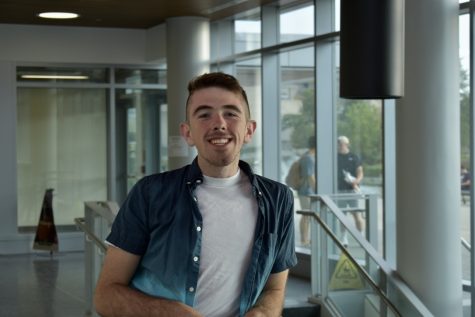
"The hero of my tale–whom I love with all the power of my soul, whom I have tried to portray in all its beauty, who has been, is, and always will be...

